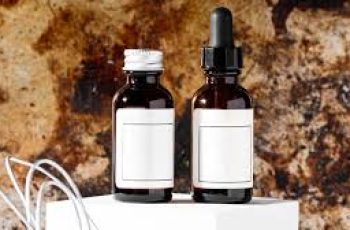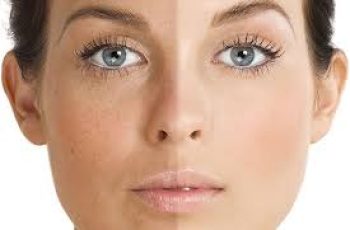
Here’s How Chemical Peels Can Make Your Skin Perfect
Chemical peels may sound scary, but they have found their way into almost everyone’s skin care routine in some way. You’ve no doubt heard beauty experts say they prefer chemical exfoliants containing AHAs and BHAs for good results, but what exactly are they and how do they differ from manual facial exfoliation? Let’s take a closer look at more information about chemical peels.
What are chemical peels?
Chemical peels are acids that react with the skin after they are applied. They remove the buildup of dead skin cells, excess sebum, and dirt that can cause breakouts and a dull complexion.
These peels are different from physical peels because you don’t need to apply pressure or movement for the product to work. Many people believe that using chemical peels instead of manual exfoliation can produce more even results without causing as much damage to the skin.
How do chemical peels work?
When a chemical peel is performed, the acid penetrates the skin’s layers and dissolves the “glue” of dead skin cells. Once the chemical bonds are gone, the dead cells can be easily removed, revealing a layer of fresh, healthy skin underneath.
Typically, alpha hydroxy acids (AHAS) work on the outer layer of the skin to help restore radiance. In this way, they prevent dead skin cells from accumulating and causing breakouts, fine lines and wrinkles, and dry patches on the skin. Beta hydroxy acids (BHAs) work deeper under the skin to remove dead skin cells and clear bacteria, trapped dirt, and excess sebum from clogged pores that can then lead to blemishes like blackheads, spots, and cysts.
At first, it can be a little daunting, especially at the thought of using an acid on your face, but be careful with how much you use to ensure you get good results. There are so many different types of acids that it can be confusing, and you need to be careful to ensure you use the best acid that both you and your skin like.
Which chemical peel acid should I use?
There’s no denying that chemical peels are a dizzying array of options. There’s an acid that’s perfect for nearly every skin type. Here’s an overview of the most popular and well-received acids on the market. You’ll find that many products contain at least one of these acids.
Glycolic Acid – Great for normal to oily skin types, this acid exfoliates the skin and clears clogged pores, making them look smaller and less noticeable. You’ll find this acid in face washes, toners, and serums, and it evens out skin texture.
Malic Acid – This acid exfoliates dead skin cells, rejuvenating dull skin for a healthy, radiant glow! This AHA is a lesser-known in the category, but may still be found in face washes, serums, and masks.
Lactic Acid – This acid is gentler and great for dry skin. Flaky areas are buffed away and moisture is locked into thirsty skin for an all-over smooth, nourished look.
Salicylic Acid – This acid works deepest in the skin to open up pores and easily remove dirt and debris, making it a panacea for acne and oily skin. You can find this BHA in many products, from serums to masks and toners.
To make sure you’ve chosen the best acid for your skin, always do a 24-hour patch test, applying a pea-sized amount of the product to your forearm or behind your ear, paying close attention to any skin irritation or reaction. If you’re still unsure, consult a dermatologist.
How to Use a Chemical Peel?
It all depends on what product you’re using for your chemical peel. You must always remember that exfoliating too often can lead to problems. If you find your skin becomes dry, tight, and uncomfortable, you may be unknowingly using too much or overusing a product that contains acids.
Face Cleansers
The acid concentration in face cleansers is lower, so you can cleanse your skin twice a day. You’ll notice a noticeable improvement, especially if you keep yourself clean and well-groomed when using a chemical exfoliating cleanser compared to other cleansers.
Toners
Toners are generally higher in acid content. Therefore, how many times a week you use them is up to you and your skin type. Start with 3 times a week and see how your skin reacts and feels. If you feel you need more, increase the applications. If your skin is dry and tight, use less.
Serums
Serums are difficult to pin down, as concentrates vary widely from brand to brand. Some recommend using them every night, while others recommend using them less frequently. Check the ingredients and instructions that come with the product to ensure proper use.
Masks
It is best not to use a mask more than three times a week, as this can cause skin irritation and tightness on the face.
These are the most popular products with chemical peeling properties. As mentioned before, when adding a new product to your routine, you should make sure it is safe and suitable for your skin.
Can I use a mask after a chemical peel?
This depends on what ingredients are included in the mask’s formula. Avoid any products that contain facial acids and other potentially irritating compounds. If you want to use a mask afterwards because your skin feels tight or burning, it is best to leave your skin exposed for about 20 minutes to give your face enough time to rebalance the oil and water content in the skin barrier. After using an over-the-counter product, using a hydrating water-based moisturizer can soothe the skin. However, if you have had a chemical peel, it is important to follow your consultant’s advice.
Can I use a chemical peel under my eyes?
This is not true, the skin around the eyes is very thin compared to the rest of the face, so the first signs of aging often start around the eyes. Any harsh acid under the eyes can cause a number of problems and can be extremely painful to the eyes. There are several acids that you can safely use around the eyes without worrying about irritation. A small amount of glycolic acid aids in cell turnover and helps to eliminate dark circles, while hyaluronic acid (unlike other acids) provides tremendous moisture to the eye area.
How quickly can you see the effects of a chemical peel?
Results vary from person to person, some may experience it after the first week, others within minutes of application!
It is able to remove the dead skin layer, and you will find that your skin is rejuvenated and looks younger, plumper, and more hydrated. Consistency is key, and if you continue to use chemical peels in your skincare routine, skin issues such as blemishes and dull complexion may become a thing of the past for a long time. Other issues such as fine lines and wrinkles become less noticeable after about 4 weeks.
Just remember not to overdo it and let the chemicals do all the work.
What are the precautions for using a chemical peel?
What you should do
Find the best chemical peel for your skin
Use as directed to see results faster
Speak to a dermatologist if you have concerns
Apply SPF daily to protect freshly exfoliated skin from the sun
Use chemical peels to remove blemishes and spots
Use chemical peels to restore radiance to a dull complexion
See results of reduced fine lines and wrinkles with regular use
What you shouldn’t do
Don’t wear rough and abrasive clothing while using a chemical peel
Don’t use a chemical peel on broken skin
Don’t use a manual facial peel before or after a chemical peel
Don’t use it before completing a 24-hour patch test
Don’t use a scrub too frequently as this can cause dryness and irritation
Don’t use it on sensitive skin without consulting your family doctor or dermatologist
Don’t use strong exfoliants around your eyes
Hopefully, you now have a better understanding of what a chemical peel is and how to incorporate it into your daily skin care routine. If you have any questions and want to learn more about the above acids, read our dedicated guide to AHAs and BHAs.
Don’t miss more skincare tips and expert advice on our YouTube channel! Click the “Subscribe” button to visit our green couch. You won’t regret it!


